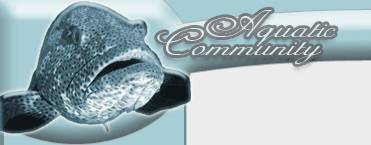Canine coronavirus
Canine coronavirus is a gastrointestinal disease in dogs. Adult dogs normally develop mild symptoms or no symptoms at all, while puppies can develop severe symptoms. The canine coronavirus belongs to the family Coronaviridae and is found in dogs all over the world. It was first discovered in the early 1970s after an outbreak of the disease had occurred in watch dogs in Germany.
Canine enteric coronavirus
When a dog gets infected with the canine enteric coronavirus, the viruses moves to the villi of the small intestine where they multiply. The symptoms are usually mild, but can be severe for puppies and/or dogs simultaneously infested with canine parvovirus.
In the family Coronaviridae you can find a wide range of different corona viruses; many of them capable of affecting not only dogs but other mammals and birds as well. A majority of the diseases caused by corona viruses is mild and not dangerous, but there are exceptions. The feared virus behind SARS – Severe Acute Respiratory Syndrome - is for instance a corona virus. Coronaviruses that causes enteric infections can also be dangerous for young creatures, including young puppies and young human infants.
The new canine respiratory coronavirus
During recent years, a new type of canine coronavirus has been discovered. They are referred to as canine coronavirus Group II and can cause respiratory disease in dogs – Canine Respiratory Coronavirus (CRCoV). This type of virus is similar to strains from bovine and human coronaviruses (strain OC43. Canine coronavirus Group II was first isolated in the United Kingdom, and has now been found in dogs living on the European mainland, the United States, Canada, and Japan. The strain in United Kingdom was discovered in 2003, but a new study has indicated that the virus strain might have been present in Saskatchewan as early as 1996.
Canine coronavirus transmission and control
The canine enteric coronavirus is highly contagious and spreads through faeces. Infected dogs normally have the coronavirus in their faeces for 6-9 days, but some individuals keep spreading viruses for up to 6 months. Most types of disinfectants will kill the canine coronavirus. Since puppies are more sensitive to the canine coronavirus, it is a good idea to have your puppy vaccinated. If a high degree of all puppies in an area gets vaccinated it will also decrease the instances of canine coronavirus since there will be fewer available disease carriers. Vaccinating your dog is especially important if it will meet a lot of other dogs, e.g. because it is a show dog or competing agility dog.
Canine coronavirus symptoms
The incubation period for canine coronavirus is short; normally 1-3 days. Common canine coronavirus symptoms are diarrhoea, vomiting and loss of appetite. To be sure, the vet can test the faeces. Fatalities do occur, but they are rare.
Canine coronavirus treatment
In most dogs, especially adult and otherwise healthy dogs, ordinary diarrhoea treatment and care will be enough during a canine coronavirus infection. Severely affected dogs may however need intravenous fluids to prevent dangerous dehydration.
Virus infections in dogs: (click for more info)
Canine coronavirus in dogs
Canine distemper in dogs
Canine herpesvirus in dogs
Canine influenza in dogs
Canine minute virus in dogs
Canine parvovirus in dogs
Infectious canine hepatitis in dogs
Kennel cough in dogs
Pseudorabies in dogs
Rabies in dogs
